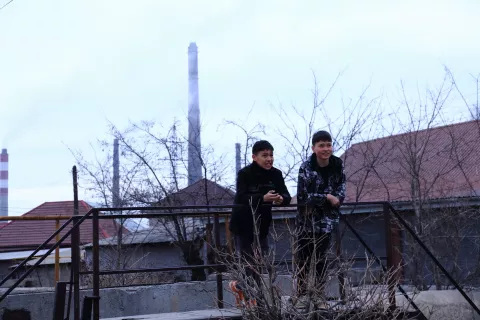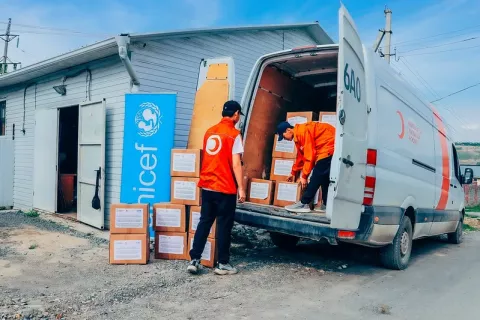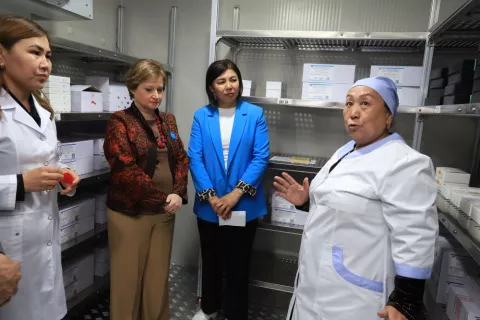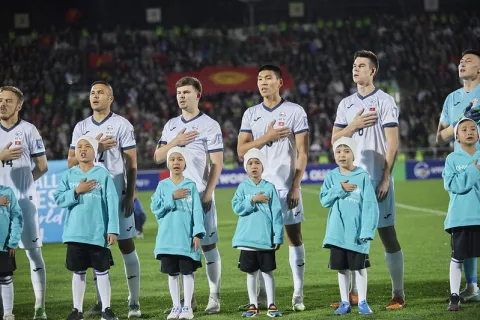Measles cases in Europe and Central Asia skyrocket by 3000 per cent this year compared to last
UNICEF warns that the increase in measles cases is attributable to a backsliding of immunisation coverage among children across the region
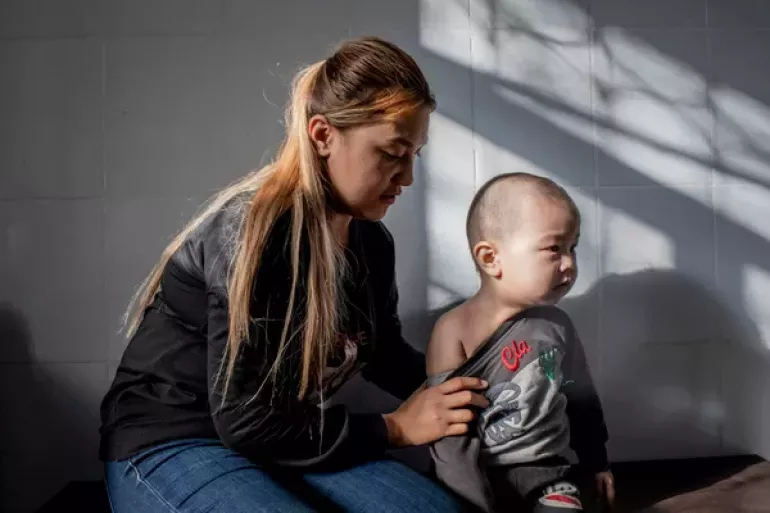
GENEVA, 14 December 2023 – There have been 30,601 confirmed cases of measles in Europe and Central Asia between January and 5 December 2023, up from 909 throughout 2022, marking a 3266 per cent increase in cases of the vaccine-preventable disease, warns UNICEF.
Data also point to a more recent worsening trend as the rate of measles cases in Europe and Central Asia nearly doubled between October and November 2023. Cases in the region are expected to rise further due to gaps in immunity.
“There is no clearer sign of a breakdown in immunisation coverage than an increase in cases of measles. Such a dramatic increase requires urgent attention and public health measures to protect children from this dangerous and deadly disease,” said Regina De Dominicis, UNICEF Regional Director for Europe and Central Asia.
Measles has a devastating effect on children’s health, with sometimes fatal consequences. It causes long-lasting weakening of children’s immune systems, making them more vulnerable to other infectious diseases including pneumonia.
The highest rate of measles cases is reported in Kazakhstan with 69 cases per 100,000 population, amounting to 13,254 cases, according to latest available data. Kyrgyzstan has the second highest rate of measles cases with 58 cases per 100,000 population, amounting to 3,811 cases. Romania, which announced last week a national measles outbreak, has a reported rate of 9.6 cases per 100,000, amount to 1,855 cases.
The increase in measles cases is attributable to a decrease in immunisation coverage across the region. A decrease in vaccine demand – in part fuelled by misinformation and mistrust which worsened during and following the COVID-19 pandemic, disruption to health services and weak primary health care systems are some of the contributing factors.
Latest data show that an estimated 931,000 children in Europe and Central Asia missed out entirely or partially on routine immunization from 2019 to 2021. In Europe and Central Asia, the immunisation rate of the first dose against measles dropped from 96 per cent in 2019 to 93 per cent in 2022. As these children pass the age when vaccines are routinely given, it requires a dedicated effort to ensure that they catch up with their vaccinations.
To reach every child, UNICEF is urging countries across the region to:
- Urgently identify and reach all children, especially those who have missed vaccinations.
- Strengthen demand for vaccines, including by building confidence.
- Prioritise funding to immunization services and primary health care.
- Build resilient health systems through investment in health workers, innovation and local manufacturing.
UNICEF works with governments, Gavi, the Vaccine Alliance, WHO and other partners to generate evidence, identify zero-dose children and missed communities, understand the root causes of backsliding from demand and supply perspectives and assess context-specific causes and risk factors. UNICEF uses this evidence to develop and implement strategies to support governments in Europe and Central Asia to immunise every child.
###
Notes to editors:
Data can be viewed here: https://www.who.int/teams/immunization-vaccines-and-biologicals/immunization-analysis-and-insights/surveillance/monitoring/provisional-monthly-measles-and-rubella-data
or more information, please contact:
Georgina Diallo, UNICEF Europe and Central Asia Regional Office, Tel: +41 76 320 68 14, gdiallo@unicef.org
Media contacts
About UNICEF
UNICEF promotes the rights and wellbeing of every child, in everything we do. Together with our partners, we work in 190 countries and territories to translate that commitment into practical action, focusing special effort on reaching the most vulnerable and excluded children, to the benefit of all children, everywhere.
For more information about UNICEF and its work for children, visit www.unicef.org.

